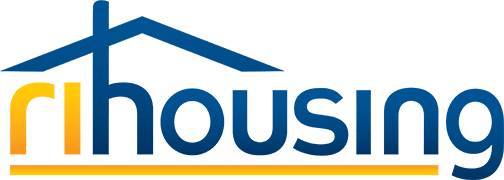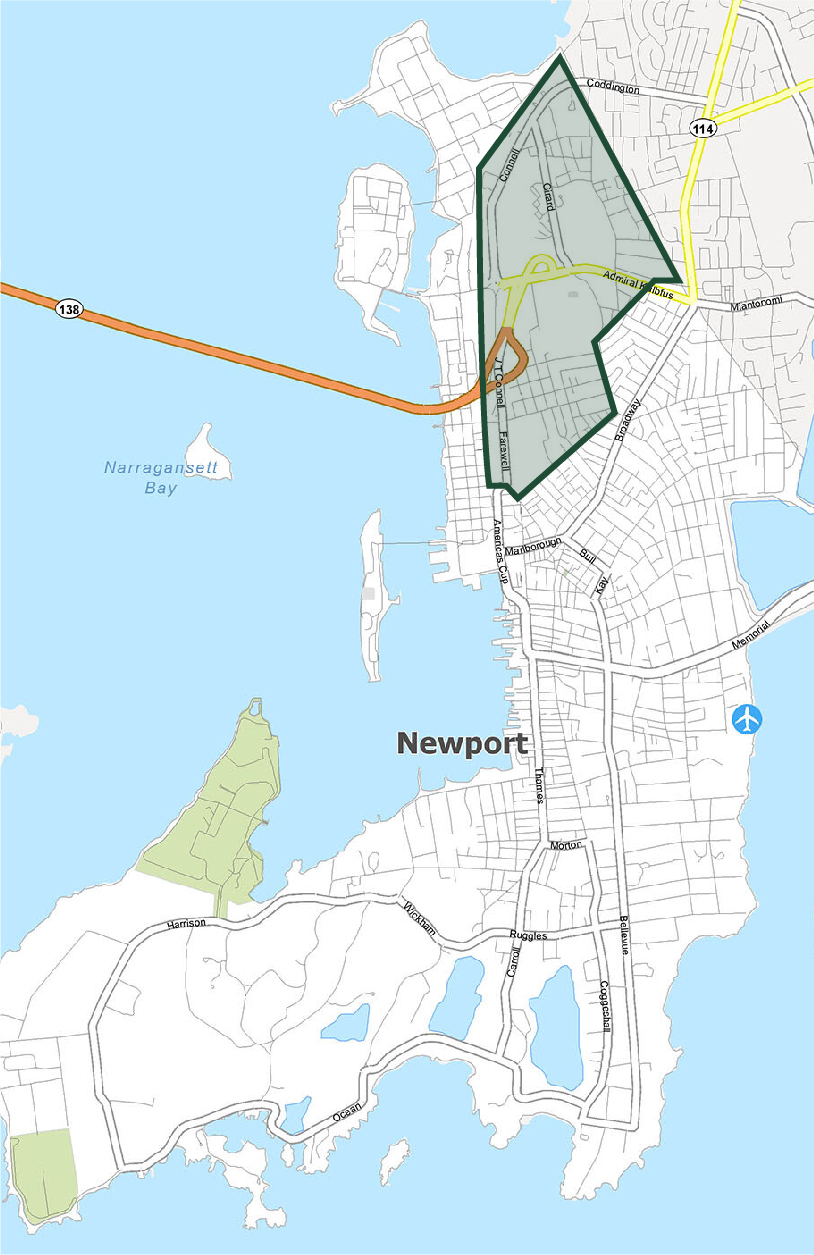Lead paint is typically found in paint dust from old doors or windows opening and closing; peeling and chipped paint, from both inside and outside of the house; and soil that has paint dust or chips in it.
RIHousing’s LeadSafe Homes Program provides remediation of lead-paint based hazards, such as:
- New windows and doors
- Interior and exterior painting
- Soil remediation
There are also resources to provide other healthy homes improvements, including, but not limited to, air quality improvements such as dryer vents and bathroom fans, minor electrical upgrades, and installation of carbon monoxide and smoke detectors.
Eligibility
The LeadSafe Homes Program is currently prioritizing applications for properties that are:
-
Department of Health referred properties/properties where a child with an elevated blood lead level resides or visits
- Property located in the target areas of Central Falls, Pawtucket, Newport and East Providence.
- Property constructed prior to 1978
- Pregnant woman or child under the age of 6 resides in property; or a child under age 6 visits the property
- Owner or tenant meets HUD income eligibility requirements under 80% AMI
Do you live in one of the cities above? Click here to learn if you are in the targeted area >
Live in Providence?
The City of Providence also runs a residential lead-paint remediation program for households that earn under a certain income level and have children who are 6 or younger that live at the property. Please take a look at the below chart – if you earn under the income threshold, and a child 6 or younger lives at the property, then we ask that you contact Providence to see if you qualify for their program. You can reach out to the following Providence Lead Remediation Program Contacts:
| Denise Henriquez 401-273-2000 ext. 187 dhenriquez@cappri.org |
Paula Baron 401-680-8427 pbaron@providenceri.gov |
INCOME LIMIT – Providence Only. You must earn UNDER the income level and have children who are 6 or younger live in the property.
| Household Size | 1 Person | 2 Person | 3 Person | 4 Person | 5 Person | 6 Person |
| Family Income | $57,350 | $65,550 | $73,750 | $81,900 | $88,500 | $95,050 |
If you do not believe you qualify for Providence’s program, please reach back out so we can assess if you would qualify for our program and place you on a waitlist.
Live in Woonsocket?
The City of Woonsocket also runs a residential lead-paint remediation program for households that earn under a certain income level and have children who are 6 or younger that live on the property. Please take a look at the below chart – if you OR your tenants (if your property is a multifamily) earn under the income threshold, and a child 6 or younger lives on the property, then we ask that you contact Woonsocket to see if you qualify for their program.
PROGRAM CONTACT
(401) 597-0845
INCOME LIMIT
Woonsocket Only. You must earn UNDER the income level and have children who are 6 or younger live in the property.
| Household Size | 1 Person | 2 Person | 3 Person | 4 Person | 5 Person | 6 Person |
| Family Income | $57,350 | $65,550 | $73,750 | $81,900 | $88,500 | $95,050 |
The Wooncosket Lead Program will process your application to determine your eligibility. If denied, please return back to us with a denial letter. We will review your application and determine eligibility based on priority.
Why should you be concerned about lead paint?
Lead paint is particularly dangerous for children 6 and under. Childhood lead poisoning is one of the most common pediatric health problems, yet it is entirely preventable. Lead paint can harm children by:
- Damaging the brain
- Slowing growth and development
- Causing learning disabilities and behavior problems
This damage is irreversible.
Lead paint is also dangerous for pregnant women. Too much lead in a mother’s body can cause the baby:
- To be born early or too small
- To have learning problems
It can also put the mother at risk for miscarriage.
Lead Remediation Process – Tenants
- Both tenants and property owner must submit applications
I’m not sure how I would approach my landlord about my interest in this program.
Both landlords and tenants have rights and responsibilities when it comes to lead paint.
A certified lead inspector inspects the property for lead hazards.
- They identify the lead hazards and create an outline for the work that needs to be done
A RIHousing approved contractor is hired to conduct the work.
- RIHousing works closely with the property owner and contractor to make sure the work is done right and in a timely fashion.
All residents of the property must temporarily leave while the work is happening.
- How long this will take depends on how much work is needed, but on average it’s 1-2 weeks
- Residents can stay with family or friends, or RIHousing will pay for temporary accommodations for the full relocation timeframe
Once the work is complete, a final inspection is conducted to ensure the property is now lead safe.
- If so, the property receives a lead safe certificate, something most homes in Rhode Island are required to have by law.
1. APPLICATION
- Both tenants and property owner must submit applications
I’m not sure how I would approach my landlord about my interest in this program.
2. INSPECTION
A certified lead inspector inspects the property for lead hazards.
- They identify the lead hazards and create an outline for the work that needs to be done
CONSTRUCTION
A RIHousing approved contractor is hired to conduct the work.
- RIHousing works closely with the property owner and contractor to make sure the work is done right and in a timely fashion.
RELOCATION
All residents of the property must temporarily leave while the work is happening.
- How long this will take depends on how much work is needed, but on average it’s 1-2 weeks
- Residents can stay with family or friends, or RIHousing will pay for temporary accommodations for the full relocation timeframe
FINAL INSPECTION
Once the work is complete, a final inspection is conducted to ensure the property is now lead safe.
- If so, the property receives a lead safe certificate, something most homes in Rhode Island are required to have by law.
How do I know if my home has lead paint?
If your home was built before 1978, the year lead in paint was banned, then there’s a good chance lead paint is present. Over 70% of homes in Rhode Island were built before 1978 and likely contain lead paint.
The most common sources of lead-paint based hazards are lead contaminated dust, peeling and chipped lead paint and contaminated soil. The best way to know if your home has lead paint is to have an inspector come out and test for it. If your home was built after 1978 there is likely no lead paint.
Are there any costs for tenants and the property owner to participate in this program?
There are no out-of-pocket expenses or monthly payments associated with the LeadSafe Homes Program for the tenant or property owner. In most cases, the loan will be completely forgiven, and the assistance is free
At times tenants may need to be relocated for a very short period of time so that contractors can repair the home safely; the LeadSafe Homes Program covers costs associated with relocation, as necessary.
How do you determine if there is lead in the home?
The most common sources of lead poisoning are lead contaminated dust, peeling and chipped lead paint, and contaminated soil.
Free lead inspections are provided by certified lead inspectors as a LeadSafe Homes Program service!
How do I know if I qualify for the LeadSafe Homes Program?
If your home was built before 1978 you may be eligible. If you are not the property owner, your landlord will first need to complete an application for the program. RIHousing can help you tell your landlord about this program, if requested.
I am not comfortable providing my personal financial information to the program.
We understand it can be unsettling to share personal, financial information that is treated as confidential. Financial information is used to verify total household income for each single family, or unit in a multifamily property.
Our program has income limit requirements in place to determine the funding source to be used to remediate a property. All documentation requested from homeowners and tenants are used solely for this purpose.
Will the information I provide affect the amount I receive for other state or federal benefits?
No. The income you report for to complete the LSHP application will not impact the amount you receive for any other benefits you, or your tenant(s), receive. The information is solely for the LSHP program.
I work but only get paid cash and have no printed paystubs.
If you are working and only receive cash payments, you can complete a Cash Income Form with our staff to verify your income.


